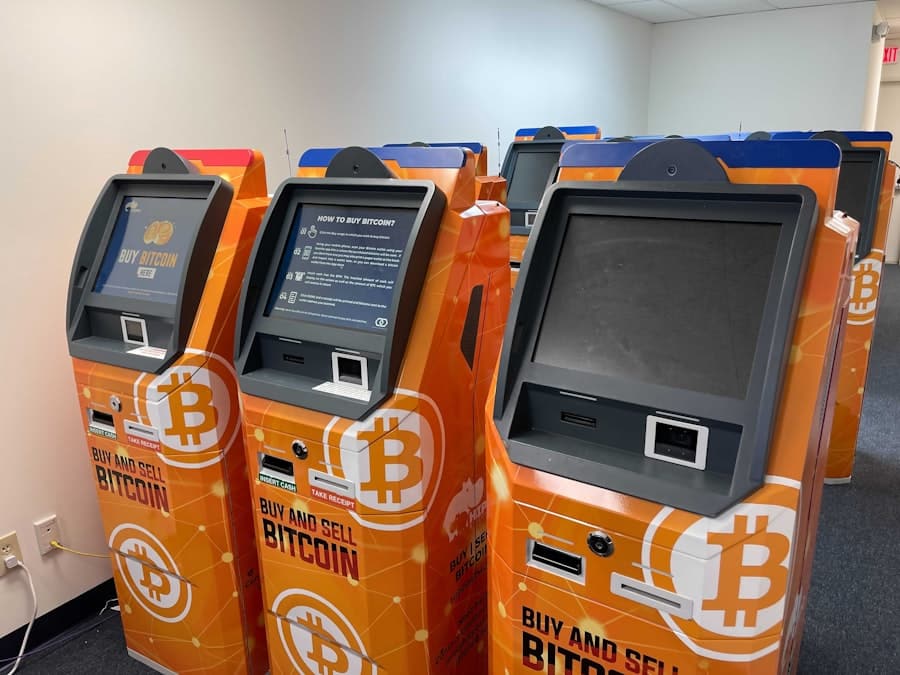The advent of blockchain technology has revolutionized various sectors, from finance to supply chain management, and now it is making significant inroads into the realm of democratic processes. Blockchain voting systems leverage the decentralized and immutable nature of blockchain to create a more transparent, secure, and efficient voting mechanism. Unlike traditional voting systems, which often rely on centralized databases and can be susceptible to fraud, manipulation, and errors, blockchain voting offers a solution that can enhance the integrity of elections.
By utilizing cryptographic techniques and distributed ledger technology, these systems aim to ensure that every vote is accurately recorded and counted, thereby fostering trust in the electoral process. The concept of blockchain voting is not merely theoretical; it has been explored and implemented in various pilot projects around the world. These systems allow voters to cast their ballots remotely, using secure digital identities that are verified through blockchain technology.
This innovation holds the potential to address some of the longstanding issues associated with traditional voting methods, such as long lines at polling stations, lost ballots, and the disenfranchisement of voters due to logistical challenges. As societies increasingly embrace digital solutions, the integration of blockchain into voting systems represents a significant step toward modernizing democracy.
Key Takeaways
- Blockchain voting systems offer increased transparency, security, and accessibility for voters.
- Advantages of blockchain voting systems for democracy include reduced fraud, increased trust in the electoral process, and the potential for increased voter turnout.
- Challenges and concerns of implementing blockchain voting systems include technological barriers, potential security vulnerabilities, and the need for public trust and acceptance.
- Case studies of successful blockchain voting systems, such as in Estonia and West Virginia, demonstrate the potential for increased efficiency and security in electoral processes.
- The role of government in implementing blockchain voting systems is crucial for establishing legal frameworks, ensuring security standards, and building public trust in the new technology.
Advantages of Blockchain Voting Systems for Democracy
One of the most compelling advantages of blockchain voting systems is their ability to enhance transparency in the electoral process. Each transaction on a blockchain is recorded in a public ledger that is accessible to all participants. This means that once a vote is cast, it becomes part of an immutable record that cannot be altered or deleted without consensus from the network.
This transparency can significantly reduce the potential for fraud and manipulation, as any attempt to tamper with the votes would be immediately visible to all stakeholders. Voters can verify that their votes were counted accurately, fostering greater trust in the electoral system. Moreover, blockchain voting systems can improve accessibility for voters.
Traditional voting methods often present barriers for individuals with disabilities, those living in remote areas, or citizens who are overseas during elections. By enabling remote voting through secure digital platforms, blockchain can empower these marginalized groups to participate in the democratic process. For instance, a voter could cast their ballot from anywhere in the world using a smartphone or computer, eliminating the need for physical presence at polling stations.
This increased accessibility can lead to higher voter turnout and a more representative electorate.
Challenges and Concerns of Implementing Blockchain Voting Systems

Despite the numerous advantages, implementing blockchain voting systems is not without its challenges and concerns. One significant issue is the digital divide; not all citizens have equal access to technology or the internet.
Ensuring that all voters have access to the necessary technology and training is crucial for the success of any blockchain voting initiative. Another concern revolves around security and privacy. While blockchain technology is inherently secure due to its cryptographic foundations, vulnerabilities can still exist, particularly at the user level.
If a voter’s private key—essential for accessing their digital identity—is compromised, it could lead to unauthorized voting or manipulation of votes. Additionally, there are concerns about how voter anonymity can be maintained in a system that records every transaction on a public ledger. Striking a balance between transparency and privacy is essential to ensure that voters feel safe and secure when casting their ballots.
Case Studies of Successful Blockchain Voting Systems
Several countries and organizations have undertaken pilot projects to explore the feasibility of blockchain voting systems. One notable example is Estonia, which has been at the forefront of digital governance since implementing its e-Residency program in 2014. In 2019, Estonia conducted its parliamentary elections using a blockchain-based system that allowed citizens to vote online securely.
The system utilized a combination of public and private keys to ensure voter identity verification while maintaining anonymity. The success of this initiative demonstrated that blockchain could facilitate secure online voting while preserving the integrity of the electoral process. Another significant case study comes from Utah County in the United States, which conducted a pilot program for overseas voters during the 2020 municipal elections.
Utilizing a blockchain-based application called Voatz, overseas voters were able to cast their ballots securely from their mobile devices. The pilot program aimed to assess the effectiveness of blockchain technology in enhancing voter participation among expatriates. The results indicated that voters appreciated the convenience and security offered by the system, leading to discussions about broader implementation in future elections.
The Role of Government in Implementing Blockchain Voting Systems
The successful implementation of blockchain voting systems requires active involvement from government entities at various levels. Policymakers must establish clear regulations and guidelines governing the use of blockchain technology in elections. This includes addressing issues related to data privacy, cybersecurity measures, and ensuring compliance with existing electoral laws.
Governments must also invest in public education campaigns to inform citizens about how blockchain voting works and its benefits, thereby building trust in this new system. Furthermore, collaboration between government agencies and technology providers is essential for developing robust blockchain voting solutions.
By fostering partnerships with private sector innovators, governments can leverage existing technologies while ensuring that they meet the specific needs of their electoral processes.
The Future of Blockchain Voting Systems in Enhancing Democratic Processes

As technology continues to evolve, so too does the potential for blockchain voting systems to reshape democratic processes worldwide. The future may see an increasing number of countries adopting these systems as they seek to modernize their electoral frameworks and enhance voter engagement. With advancements in artificial intelligence and machine learning, it may be possible to develop even more sophisticated verification methods that ensure voter identity while maintaining privacy.
Moreover, as public awareness of blockchain technology grows, citizens may demand more transparency and accountability from their electoral systems. This shift could lead to greater pressure on governments to adopt innovative solutions like blockchain voting as a means of restoring faith in democracy. The integration of such technologies could also pave the way for more participatory forms of governance, where citizens have a direct say in policy decisions through secure digital platforms.
Potential Impact of Blockchain Voting Systems on Voter Turnout and Participation
The implementation of blockchain voting systems has the potential to significantly impact voter turnout and participation rates. By providing a more accessible and convenient way for individuals to cast their votes, these systems can encourage greater engagement among populations that have historically faced barriers to participation. For instance, younger voters who are more accustomed to digital interactions may be more likely to engage with a system that allows them to vote via their smartphones.
Additionally, by reducing logistical challenges associated with traditional voting methods—such as long lines at polling places or difficulties in obtaining absentee ballots—blockchain voting can create a more streamlined experience for voters. This ease of access may lead to increased participation rates across various demographics, ultimately resulting in elections that better reflect the will of the people.
The Potential of Blockchain Voting Systems for Democracy
The exploration of blockchain voting systems represents a significant opportunity for enhancing democratic processes around the globe. By addressing issues related to transparency, accessibility, and security, these systems hold promise for restoring trust in electoral outcomes while encouraging greater participation among citizens. However, careful consideration must be given to the challenges associated with implementation, including ensuring equitable access to technology and safeguarding voter privacy.
As governments continue to navigate the complexities of modern democracy, embracing innovative solutions like blockchain voting could pave the way for more resilient electoral systems that adapt to the needs of an increasingly digital society. The potential impact on voter turnout and engagement underscores the importance of exploring these technologies further as we strive toward a more inclusive and representative democratic process.
In exploring the potential of blockchain voting systems to enhance democratic processes, it’s essential to consider the technological advancements that support such innovations. For instance, the development of secure and efficient hardware is crucial for implementing blockchain solutions effectively. An article that delves into the latest advancements in technology, such as the capabilities of modern laptops, can provide valuable insights. For more information on cutting-edge technology that could support blockchain voting systems, you might find this article on The Best Lenovo Laptops particularly relevant. It discusses the features and performance of Lenovo laptops, which are known for their reliability and could play a role in the infrastructure needed for secure digital voting platforms.
FAQs
What is a blockchain voting system?
A blockchain voting system is a digital platform that uses blockchain technology to securely and transparently record and store votes in an immutable and decentralized manner.
How does a blockchain voting system work?
In a blockchain voting system, each vote is recorded as a transaction on a blockchain network. The votes are encrypted and linked together in blocks, creating a tamper-proof and transparent record of the voting process.
What are the potential benefits of blockchain voting systems for democracy?
Blockchain voting systems have the potential to increase transparency, security, and accessibility in the voting process. They can also reduce the risk of fraud and manipulation, and provide a more efficient and cost-effective way to conduct elections.
What are the challenges and concerns associated with blockchain voting systems?
Challenges and concerns related to blockchain voting systems include issues of privacy, scalability, accessibility, and the potential for technical vulnerabilities. There are also concerns about the digital divide and the ability of all citizens to participate in a blockchain-based voting system.
What are some examples of blockchain voting systems being used or tested in real-world elections?
Several countries and organizations have been exploring the use of blockchain voting systems, including Estonia, Switzerland, and the city of Zug. Additionally, some political parties and organizations have conducted internal elections using blockchain technology.
What is the future outlook for blockchain voting systems in democracy?
The future of blockchain voting systems in democracy is still uncertain, as there are ongoing debates and discussions about the feasibility and security of implementing such systems on a large scale. However, the potential for increased transparency and security may lead to further exploration and adoption of blockchain voting systems in the future.

